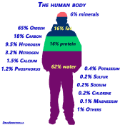What is Alcohol Overdose?
Alcohol overdose or poisoning is a potentially life-threatening condition that results from drinking too much alcohol. When alcohol is consumed, it absorbs into the bloodstream and circulates throughout the body.
When there is too much alcohol in the bloodstream, alcohol poisoning occurs. It can affect the brain, heart, and other vital organs. Not to mention other ravages of alcohol.
Drinking too much and too quickly impairs motor skills and produces alcohol intoxication. This means a person’s ability to control body movements can be affected. It can lead to the loss of the gag reflex and low body temperature, unconsciousness, and death.
Reaction time and decision-making may also slow, increasing the risk of accidents. Drinking beyond clear signs of impairments can result in alcohol overdose.
Binge Drinking and Alcohol Poisoning
Binge drinking is the consumption of a lot of alcohol in a short period. When someone binge drinks, they are more likely to consume more alcohol than their body can handle. It is important to be aware of binge drinking’s effects, especially if you plan to drink alcohol during a holiday party or other social event.
Be sure to pace yourself and drink slowly. If you feel like you’ve had too much alcohol, stop drinking. If you experience any of the symptoms of alcohol poisoning, seek medical help immediately. Stay safe, and always keep an eye out for your friends and loved ones.

Stages of
Addiction
Drug
Overdose

Blood Alcohol Concentration

Blood alcohol concentration (BAC) measures alcohol in a person’s blood. The higher the BAC, the more impaired a person will be. As you absorb alcohol, it enters your bloodstream, which raises your blood level concentration.
All the blood leaving the stomach and intestines passes through the liver. Then the liver breaks down the alcohol. But when the blood concentration levels are high, it overwhelms the liver and can’t remove the toxins quickly enough. Factors that increase the risk of alcohol overdose include age, weight, gender, and health conditions.
Young people are at greater risk for alcohol poisoning because their bodies cannot break down alcohol as quickly as adults. People with low body weight are also at greater risk since they will reach a higher blood alcohol level with less alcohol. Women are more susceptible to alcohol poisoning than men, and people with certain health conditions (such as liver disease or epilepsy) are also at risk.

How to
Quit Crack
Understanding
Cravings

Symptoms of an Alcohol Overdose
The signs and symptoms of alcohol poisoning are:
- confusion,
- vomiting,
- seizures,
- slow or irregular breathing,
- Difficulty staying conscious or not waking up
- Skin can be clammy,
- irregular heartbeat, and
If you suspect someone has alcohol poisoning, call 911 immediately – even if the person insists they are fine. As mentioned above, an alcohol overdose can quickly become life-threatening, so every second counts. If left untreated, alcohol poisoning can lead to coma or death. Treatment for alcohol poisoning includes supportive care, such as oxygen therapy and intravenous fluids.
Alcohol Overdose Statistics
While alcohol overdose is a problem in the United States that kills about 6,000 people yearly, it is also an issue in Canada. In fact, alcohol poisoning kills about 1,000 people every year in Canada –that’s just the tip of the iceberg. Alcohol overdose is actually one of the leading causes of death for young Canadians under 30.
The best way to prevent alcohol overdose is to drink responsibly and know your limits. It is also important to be aware of the signs of alcohol poisoning and seek medical help immediately if someone appears to be suffering from it. Alcohol is the most used drug and addicted users need special attention.

Alcohol and
Depression
Drug Induced Psychosis

Alcohol Overdose Prevention and Steps to Take
So, how can alcohol overdose be prevented? The most important step is to drink alcohol in moderation. It’s also important to know the signs and symptoms of alcohol poisoning. Know your limits and be aware of the symptoms so that you can get help if needed.
When you suspect an alcohol overdose, it is important to take the necessary precautions to ensure the safety of the person affected. If the person is conscious, try to keep them awake and hydrated. If unconscious, place them in the recovery position and call 911. Do not leave the person alone.

Addiction Series
- Alcohol and Depression
- Alcohol, Dangers in Stopping
- Alcohol Overdose
- Addiction – Beginning
- Addiction Symptoms
- Addiction Consequences
- Drug-Induced Psychosis
- Drug Overdose
- How to quit crack cocaine?
- It’s Difficult to Quit Drinking
- Overlooking Addiction & Diagnosing Depression
- Stages of Addiction
- Quitting Weed
- The Functional “Addict” Defined
- Understanding Cravings
- What is Addiction?
- Alcohol and Depression
- Alcohol, Dangers in Stopping
- Alcohol Overdose
- Addiction – Beginning
- Addiction Symptoms
- Addiction Consequences
- Drug-Induced Psychosis
- Drug Overdose
- How to quit crack cocaine?
- It’s Difficult to Quit Drinking
- Overlooking Addiction & Diagnosing Depression
- Stages of Addiction
- Quitting Weed
- The Functional “Addict” Defined
- Understanding Cravings
- What is Addiction?
Find out more about us.

Carole Pelland
Substance Abuse
Digital Marketing Administrator
& Author






